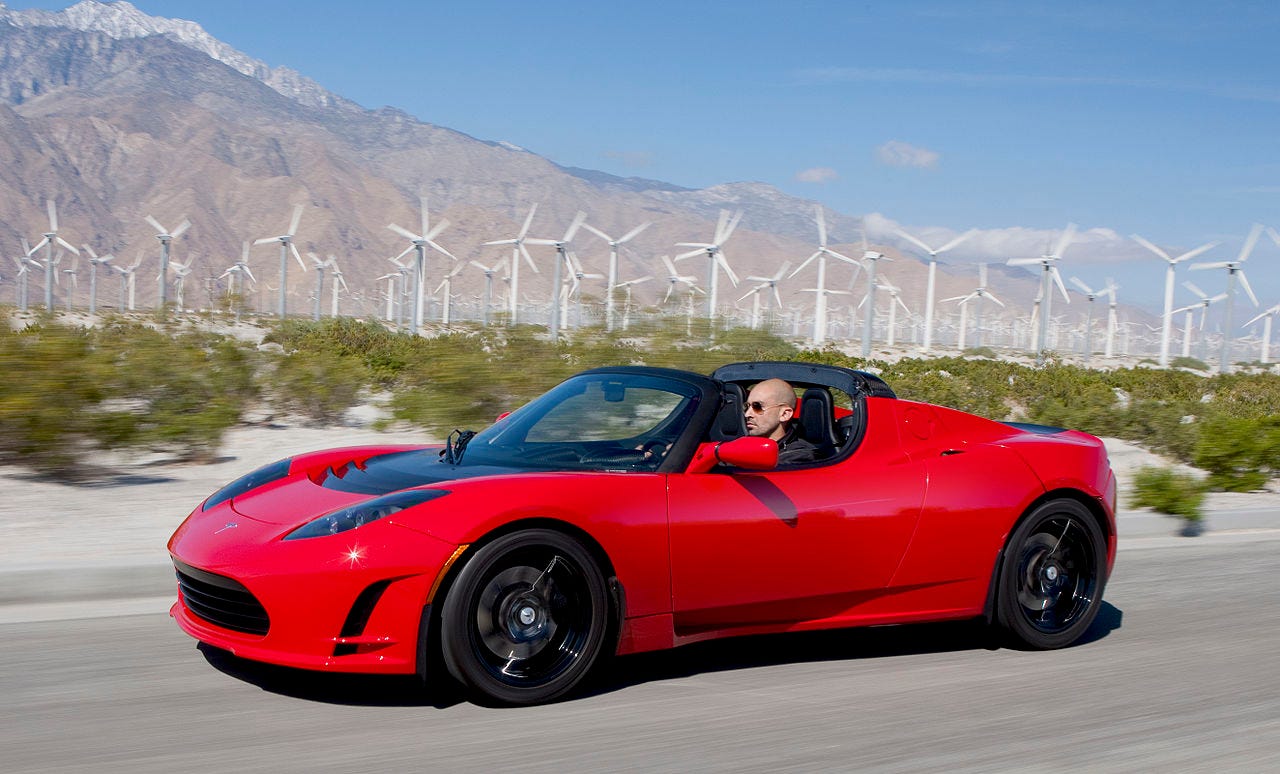Apple's car aspirations
Should Apple buy Tesla in 2018?
One of my favorite pieces of advice from Charlie Munger is to “invert, always invert”1. By this, he means that instead of trying to approach a question directly, flip it around and try to prove its negative. Failing to prove the negative is often a very effective way of answering the original question.
Following Mr. Munger’s advice, instead of listing all the reasons why Tesla and Apple make (or do not make) sense together, I would flip the question around and ask, “Why shouldn’t Apple purchase Tesla in 2018?”
You see, phrasing it this way leads to this response:
“Because there may be better alternatives out there for Apple.”
Inverting the question puts the focus on Tesla vs. alternatives instead of just focusing on Tesla in a vacuum. Now, your job is to try to think of a better alternative than Tesla. And to definitively answer this question, all you need to do is come up with a single one.

Others have thrown out some interesting alternatives but allow me to throw out one idea as well: Apple should take a stake in or form a joint venture with a Chinese automaker, preferably one with strong electric-vehicle technology.
First, the capital outlay would be significantly lower. Instead of spending anywhere from $30 to $70 billion to buy out existing Tesla shareholders2 — and more on top to fund Tesla’s ambitious growth plan — you could capitalize a well-funded joint venture with less than a tenth of that with all the funds going into organic development and manufacturing capacity. Even purchasing a whole company — not something I’d recommend by the way — would be a lot cheaper. Geely, one of China’s leading automakers (and one of the best-run, in my view), trades at less than a third of Tesla’s market capitalization. Another consideration here would be that Apple can use offshore cash to invest in or acquire a Chinese company but would have to use primarily onshore cash (which is subject to a repatriation tax) to buy out Tesla, a U.S. company.
Second, Apple would gain preferential access into the world’s largest automobile market. China represents 30% of the global market3 and perhaps even more importantly, close to half4 of plug-in electric vehicle demand. This is despite the fact that China still ranks somewhere between Sri Lanka and Armenia in per capita car ownership5. A nice bonus to this would be political support for its iOS business and manufacturing presence in China, especially in the middle of an escalating trade war with the U.S. (on a related note, Tesla’s entire $2 billion China revenue stream is in serious jeopardy with the recent increase in import tariffs on its cars).
Third, the deal would just be a lot cleaner and easier to execute. Setting up the joint venture or taking a major equity stake would be fairly straightforward. Compare to Tesla, which has its fingers in multiple businesses (solar, battery manufacturing, power generation, charging network etc.), some of which may or may not fit with Apple’s strategy and approach and others which may come in direct conflict with where Apple may want to focus (e.g. software and autonomous driving). I won’t even get into the issue of having to figure out how to best handle Mr. Musk himself in such a situation. With a Chinese company, I think the delineation of value-add and what each party brings to the table would be very clear, which usually makes for a better partnership.
Finally, there are a lot of Chinese automakers to choose from, including many recent electric-focused new entrants (e.g. Nio, which recently filed to go public. The Chinese market is quite fragmented currently and is likely going to go through a consolidation phase in the near future. Any Chinese car company that partners with Apple would immediately vault into pole position to lead this consolidation.
Now this is just one idea that I had been thinking about earlier today (as I had been doing some work on the Chinese auto industry). I am not even sure if it is the best one out there — perhaps as others have mentioned collaborations with a Volkswagen or Fiat-Chrysler make even more sense.
Then there is the alternative of waiting and doing nothing (for now). Tesla itself could run into a rough patch and get a whole lot cheaper, or the external environment can change and help make the decision path more clear. I remember when Apple first came out with the Newton, an early “personal digital assistant”, in the mid-90s. It was about a decade too early for its time but eventually paved the way for the iPhone, the most successful consumer product in history.
But the key point here is that Apple has so many alternatives to choose from if it wants to get into the automaking business and, in my view, the likelihood is quite low that acquiring Tesla in the near-term ends up being the best one.
So, to answer the original question: No, I do not think Apple should buy Tesla.
This was originally published on Quora on August 25th, 2018.
As of 2018. Wikipedia: List of countries by motor vehicle production
As of 2018. The Electric Vehicle World Sales Database
As of 2018. Wikipedia: List of countries and territories by motor vehicles per capita

This turned out to be one of your worst takes. But you have so many good takes it doesn't really matter! And actually, if Apple had in fact bought Tesla in 2018 for ~$50 billion, maybe Tesla never would have become a ~$1.5 trillion company anyway.